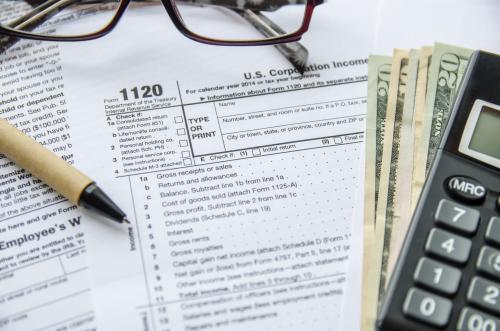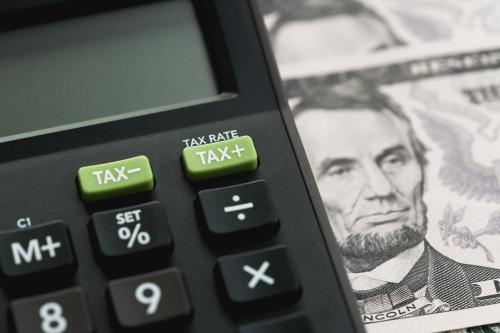President Biden has launched an ambitious agenda to crack down on people and corporations who aren’t paying the taxes they owe. That agenda, however, is being held up by financial institutions lobbying to avoid new reporting requirements. Common sense would reject their arguments against moving forward, and Congress should, too.
Treasury Department studies project that the tax gap—the difference between what people pay and what people owe—now hovers around $600 billion per year. More than one out of every seven dollars that are owed in taxes are not paid. This has occurred in part because IRS funding and staffing levels have gone downhill over the past 10 years.
The noncompliance rate also depends critically on information reporting. Noncompliance is particularly low where third-party information reporting occurs. For example, employers routinely withhold income and payroll taxes on their employees’ wage, send the funds to the government, and report those amounts annually to the worker. As a result, the estimated noncompliance rate on such income is around 1 percent. In contrast, income from farms and sole proprietorships do not have such withholding or third-party reporting and noncompliance in those and similar areas is estimated to exceed half of all taxes owed.
The noncompliance rate for the wealthiest individuals, who typically earn the majority of their income through investment income (facilitated through financial institutions), is the hardest to detect, but recent estimates suggest it is quite high, with a large majority of evasion committed by high-income individuals. This provides some perspective on whom the financial institutions are protecting by lobbying against the information provisions. In sharp contrast, as noted above, wage earners tend to pay all the taxes they owe.
Enter President Biden. The first part of his plan would beef up IRS technology and staff on a sustained basis. Based on historical estimates of the return to enforcement activities, this would generate about $240 billion in revenues—net of added expenses—over the next decade and presumably more in the years beyond that.
The second part would boost timely information reporting by financial institutions, which the administration estimates would raise a whopping $460 billion over the next decade. The information would materially help the IRS in its efforts to identify likely and actual evasion.
Opponents have put forth two main claims: the reform would not help the IRS as much as predicted, and it would place large burdens on financial institutions. The first claim misses the point that, as noted above, third-party information reporting is essential to increase voluntary compliance and root out evasion. Even if the proposal raises somewhat less than the predicted $460 billion, the revenue effect would be substantial.
The second claim strains credulity. Financial institutions are quite capable of complying with regulations and are prompt, for example, to tell customers about even small overdrafts. Credit card companies are able to record even the tiniest transactions on a near-immediate basis. The rules that the administration proposes would expand the use of an already existing form (the 1099-INT) and would pertain to information that the financial institution already has.
A third argument put forth is that the proposal would somehow burden or harm moderate-income taxpayers, particularly minorities. No additional burden or requirements, however, would be imposed on individuals or (non-financial) businesses. Despite some claims to the contrary, businesses would not be required to reconcile financial accounts and income tax returns. If anything, it would help ordinary (honest) taxpayers by reducing the likelihood that they were targeted with audits. And there does not appear to be an added risk to taxpayer privacy.
Right now, the IRS is trying to fight tax evasion with one hand tied behind its back. President Biden has proposed transformational policies that could substantially reduce tax cheating and thus make the tax system fairer for the large majority of taxpayers who are honest. Republicans and some Democrats have recently expressed concerns about higher budget deficits. Cracking down on evasion would be an ideal way to raise revenue without boosting official marginal tax rates.
The Brookings Institution is financed through the support of a diverse array of foundations, corporations, governments, individuals, as well as an endowment. A list of donors can be found in our annual reports published online here. The findings, interpretations, and conclusions in this report are solely those of its author(s) and are not influenced by any donation.
The Brookings Institution is committed to quality, independence, and impact.
We are supported by a diverse array of funders. In line with our values and policies, each Brookings publication represents the sole views of its author(s).






Commentary
Op-edGive IRS the tools it needs to enforce tax rules and catch cheaters
September 1, 2021